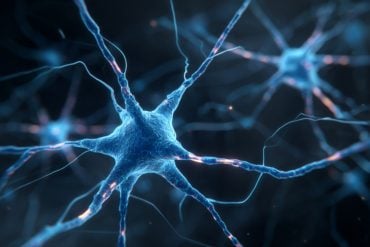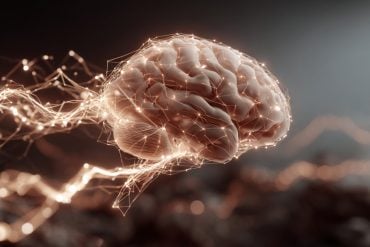Summary: A small-scale study found children with ADHD who took micronutrients had lower levels of gut bacteria previously linked to the disorder, and a healthier range of overall microbiota. The study indicates micronutrient supplements could be a safe therapy for those with ADHD. Researchers stress further research is needed.
Source: University of Otago
Children with attention-deficit/hyperactivity disorder (ADHD) who took micronutrients had lower levels of a bacteria linked to the psychological disorder, and a healthier range of bugs in their gut overall, new research shows.
The study was recently published in Nature’s Scientific Reports journal. It was a collaboration between University of Otago, Christchurch geneticists and the University of Canterbury’s Mental Health and Nutrition laboratory.
The pilot study indicates micronutrient supplementation – which includes vitamins and minerals – could be a safe therapy for those with ADHD. It also shows the need for a larger study in the role of a specific bacteria called bifidobacterium on neurodevelopmental disorders such as ADHD.
University of Otago, Christchurch geneticist Dr Aaron Stevens was the lead researcher on the study. He says there is growing evidence internationally indicating the human gut microbiome, or gut bacteria, could have a role to play in the development of disorders such as depression, ADHD and autism. A large recent international study found children with ADHD had significantly higher levels of the bifidobacterium bacteria in their gut than those without the condition.

Using latest DNA technology Dr Stevens and his colleagues analysed the gut bacteria of children given a specific range of micronutrients over a 10-week period. The study was small, with just 17 children aged between 7 and 12 participating. Ten children were given micronutrients, while the others were given a placebo treatment.
The researchers found:
- Taking micronutrients did not negatively affect the overall structure or composition of the microbiome.
- Children taking micronutrients had significantly more Observed Taxonomic Units (OTUs) which is a positive measure of ‘richness’ in the microbiome community.
- Children taking the micronutrients had significantly fewer bifidobacterium than other children.
Professor Julia Rucklidge leads the University of Canterbury’s Mental Health and Nutrition laboratory. She says the latest research is important in showing micronutrients can create some positive changes to the microbiome of children with ADHD in the study.
“What scientists are now wondering is whether people who suffer from specific psychiatric symptoms, like those associated with ADHD, have a different bacterial composition than those who don’t have these symptoms and whether these differences can help us understand the severity of the symptoms,” Professor Rucklidge says.
“More research is needed with larger groups of people with ADHD, and to understand the potential effect of diet, medications, age, ethnicity and gender on the results that have been reported.”
Rucklidge says the pilot study of the effect of micronutrients on the microbiome follows a study of almost 100 children investigating the impact of vitamin-mineral treatment on the aggression and emotional regulation in children with ADHD. That study found micronutrients improved overall function, reduced impairment and improved inattention, emotional regulation and aggression in the child participants.
Source:
University of Otago
Media Contacts:
Kim Thomas – University of Otago
Image Source:
The image is in the public domain.
Original Research: Open access
“SHuman gut microbiome changes during a 10 week Randomised Control Trial for micronutrient supplementation in children with attention deficit hyperactivity disorder”. Aaron J. Stevens, Rachel V. Purcell, Kathryn A. Darling, Matthew J. F. Eggleston, Martin A. Kennedy & Julia J. Rucklidge.
Scientific Reports. doi:10.1038/s41598-019-46146-3
Abstract
Human gut microbiome changes during a 10 week Randomised Control Trial for micronutrient supplementation in children with attention deficit hyperactivity disorder
It has been widely hypothesized that both diet and the microbiome play a role in the regulation of attention-deficit/hyperactivity disorder (ADHD) behaviour. However, there has been very limited scientific investigation into the potential biological connection. We performed a 10-week pilot study investigating the effects of a broad spectrum micronutrient administration on faecal microbiome content, using 16S rRNA gene sequencing. The study consisted of 17 children (seven in the placebo and ten in the treatment group) between the ages of seven and 12 years, who were diagnosed with ADHD. We found that micronutrient treatment did not drive large-scale changes in composition or structure of the microbiome. However, observed OTUs significantly increased in the treatment group, and showed no mean change in the placebo group. The differential abundance and relative frequency of Actinobacteria significantly decreased post- micronutrient treatment, and this was largely attributed to species from the genus Bifidobacterium. This was compensated by an increase in the relative frequency of species from the genus Collinsella. Further research is required to establish the role that Bifidobacterium contribute towards neuropsychiatric disorders; however, these findings suggest that micronutrient administration could be used as a safe, therapeutic method to modulate Bifidobacterium abundance, which could have potential implications for modulating and regulating ADHD behaviour. Our pilot study provides an initial observation into this area of research, and highlights an interesting avenue for further investigation in a larger cohort. Furthermore, these novel results provide a basis for future research on the biological connection between ADHD, diet and the microbiome.






